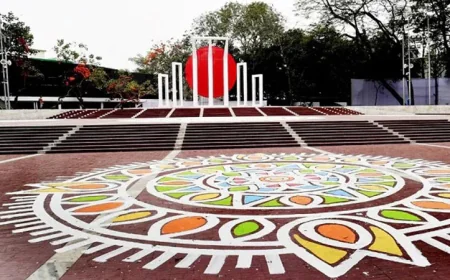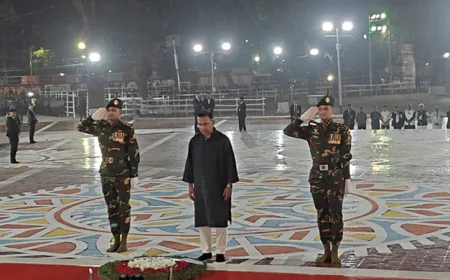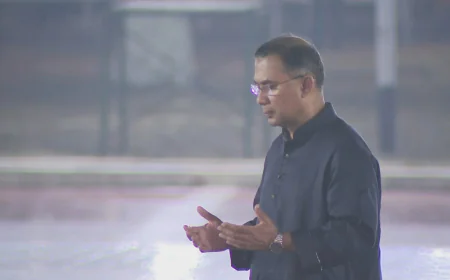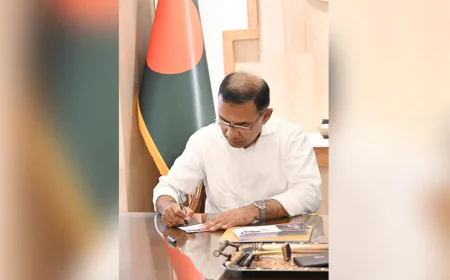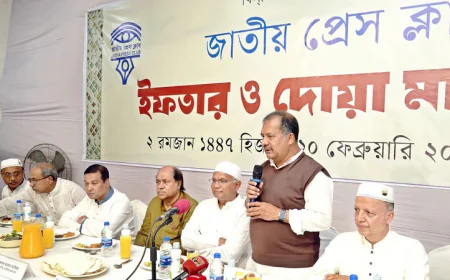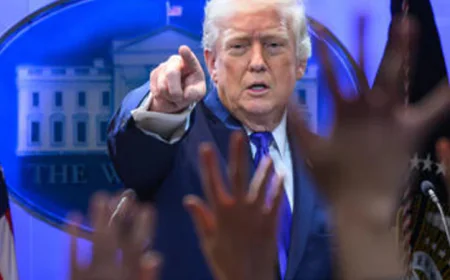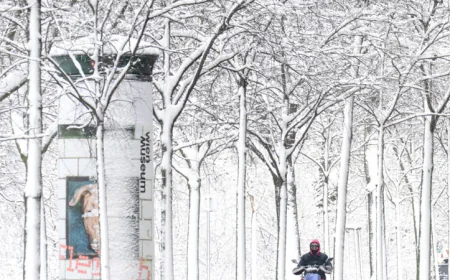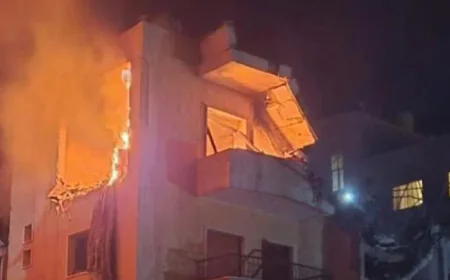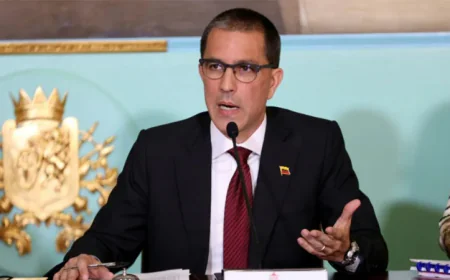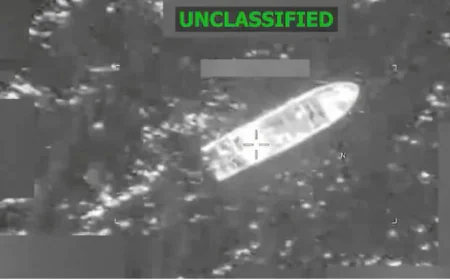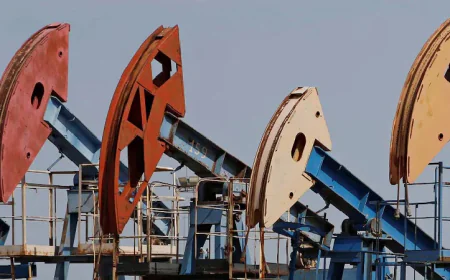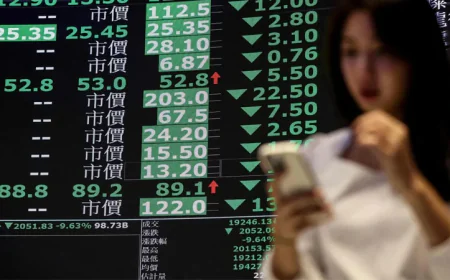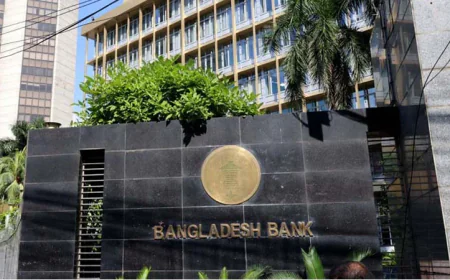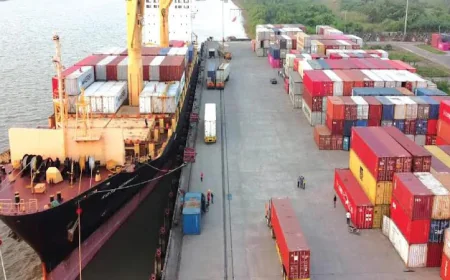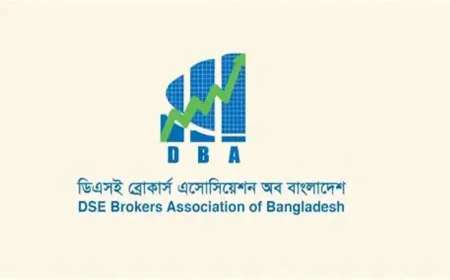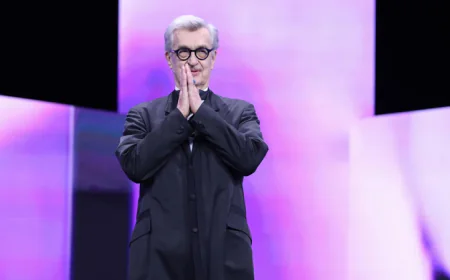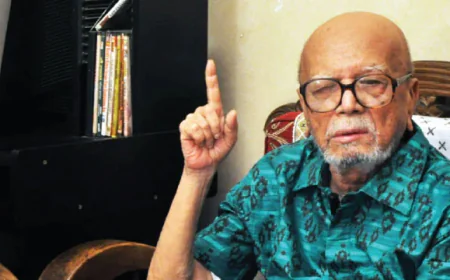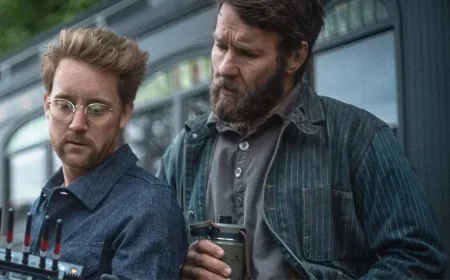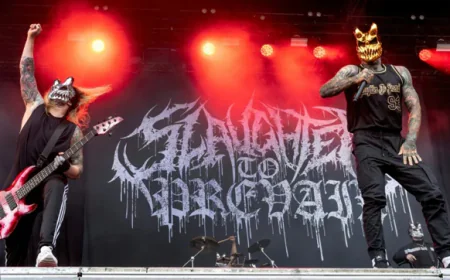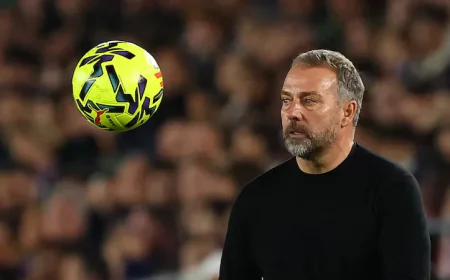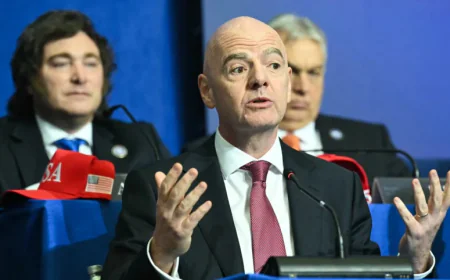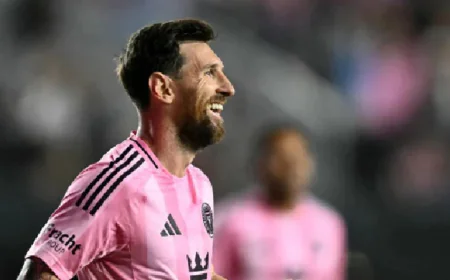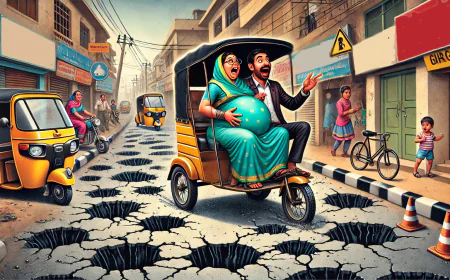Satire : Dhaka’s Tesla
Speed, Shock, and the Battery-Powered Apocalypse
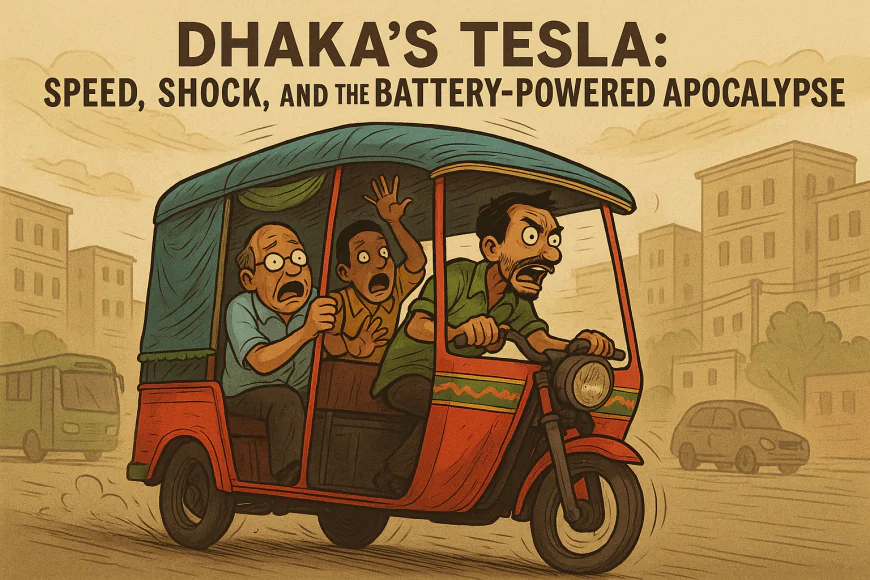
Navigating the streets of Dhaka is not just a daily routine—it’s an extreme sport, a survival challenge, and a test of patience all rolled into one. Some people head to work, some to the bazaar, and some to secret dates. But if you happen to step into a battery-powered rickshaw—fondly nicknamed “Tesla” by the locals—you’re not just a passenger anymore. You become a warrior of fate, buckling up for an adrenaline rush, a spiritual awakening, and possibly, your last selfie.
Now don’t be fooled by the name. This “Tesla” isn’t your sleek American EV. No sir. This is a glorified tin can with wheels, duct tape, fairy lights, and a steering handle made of bent pipe. The roof looks like it was borrowed from a village tea stall and the seat feels like punishment furniture from a medieval dungeon. But don’t worry—once the engine starts, it all fades into a thrilling whirl of noise and speed.
You see, when these rickshaws start up, they don’t make a regular motor sound. They scream. They growl. They sound like a goat being electrocuted on a rollercoaster: “Grrrreeeechhh-Tang-Tang-Graaahhh!” People on the sidewalk jump aside. Nearby cars slow down in fear. Even the crows fly away in confusion.
And don’t even think about asking the driver to slow down. Tell him “Brother, could you go a bit slower?” and he’ll look at you like you just insulted his religion. “Why? Battery is new, road is clear, and Allah is with us!” he’ll reply, as the rickshaw zips past traffic, narrowly missing a vegetable seller, two dogs, and a minor earthquake.
Inside the rickshaw, passengers sit gripping whatever they can—bars, window frames, sometimes even each other. One ride feels like a blend of bungee jumping and a religious pilgrimage. Many passengers have claimed they saw their childhood, exes, and their ancestors flash before their eyes during a sharp turn.
These drivers? Legends in their own minds. One once told me proudly, “I used to work in aviation before this.” “Really?” I asked. “What did you do?” He smiled, “I used to fly paper planes. Now I fly people.”
And let’s talk about traffic laws—or rather, the lack of them. These rickshaws follow a unique set of cosmic rules: whoever honks loudest goes first. Overtaking from the left, right, top, or through people’s dreams? All valid. Traffic signals are seen as mere suggestions. Police officers give way to them out of pure self-preservation. You’ll hear the cop mumble, “I’ve got a family, I’m not stopping that thing.”
Accidents are so common, the rickshaws themselves come pre-dented. They treat collisions like high-fives. If two “Teslas” crash, the drivers come out blaming each other’s brakes or luck, sometimes quoting religious philosophy mid-fight.
And then there are the messages painted on the back of these vehicles: “Mom’s Prayer = Speed,” “No Brake No Problem,” and “Born to Fly (But Battery Low).”
Despite all this, these rickshaws have earned their place in the ecosystem of Dhaka. They’re cheap, fast, and provide the kind of thrill that even Six Flags can’t match. In fact, local doctors are now recommending one ride per week to improve blood circulation, increase prayer habits, and humble the ego.
So to those who believe Teslas only exist in America, come to Dhaka. Here, our Teslas may not be smart—but they’re supercharged with chaos, culture, and enough character to make Elon Musk cry.
